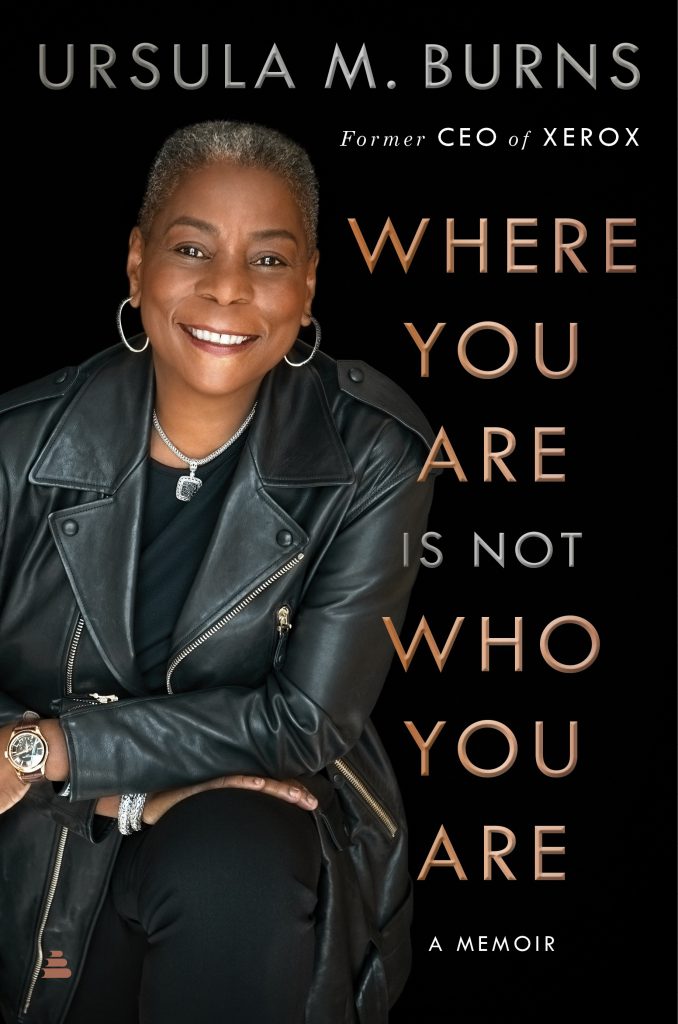By Terri Schlichenmeyer
Start small, plan big.
You don’t have to have much for the former, just a little love and a place to launch. The latter, though, that takes some work. You have to see the goal, hold your confidence tight, and know yourself well. And then, as in the new book “Where You Are is Not Who You Are” by Ursula M. Burns, you step up and fly.
When she was a child growing up in a New York tenement, Ursula Burns never thought about how much her mother sacrificed for her and her siblings. The family had food, shelter, a TV, school, and clothing. It wasn’t until Burns was almost grown that she realized what a feat this was: her single, Panamanian-born mother kept the family going on $4,400 a year.
 Somehow, despite the lack of income, Burns was able to attend a Manhattan Catholic school, where she excelled in her studies and learned that being vocal could make a difference in how things were run. This outspokenness did indeed make change, but it also led to a certain amount of chiding when she was an adult.
Somehow, despite the lack of income, Burns was able to attend a Manhattan Catholic school, where she excelled in her studies and learned that being vocal could make a difference in how things were run. This outspokenness did indeed make change, but it also led to a certain amount of chiding when she was an adult.
Upon graduation, Burns says she had her pick of several major colleges, but she chose Brooklyn Polytech, after having decided upon a career based on the its potential income. It was heavily steeped in math, a skill she was good at but her more-privileged classmates were better; it took a few months to catch up before she began tutoring others in math class. Burns loved school and she was grateful for the help she got from New York’s Higher Education Opportunity Program (HEOP) , which provided support, both career-wise and economically.
At the end of her junior year in college, she accepted an internship position at Xerox and the company supported her while she got her master’s degree. Upon graduation, she took the full-time job they offered, a position that allowed her to make history…
Get a few pages into “Where You Are is Not Who You Are” and you might reconsider your plans to finish this book. Author Ursula M. Burns jumps almost immediately to the latter part of her career, leaping from point to place to person in a dizzying chunk that’s exhausting to read. Name-dropping features heavily there, it lasts way too long, and it feels forced.
If you’re still with the book, you’ll be happy when Burns settles in to share her memoir, a rags-to-riches tale that has the feel of a TV movie. It rambles a little, but that rambling is appealing; Burns writes of poverty and of determination, resourcefulness, and the love of family before sliding into the story of her career again.
The second time on that subject, thankfully, is readable and quite well-done.
This is one of those books in which you need to prepare yourself to pick and choose what you read. Be ready to skim or skip parts. Do that, and you’ll be fine; otherwise, reading “Where You Are Is Not Who You Are” could be a big task.




